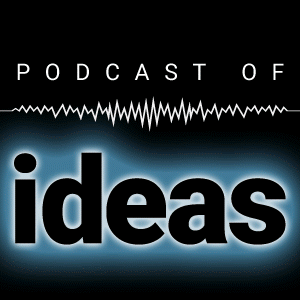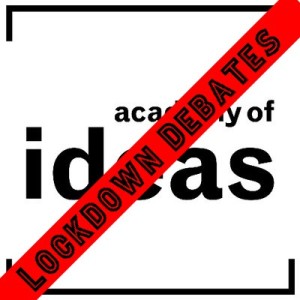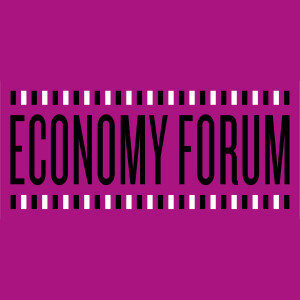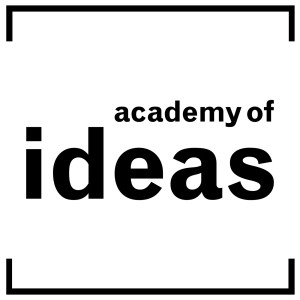Academy of Ideas
The Academy of Ideas has been organising public debates to challenge contemporary knee-jerk orthodoxies since 2000. Subscribe to our channel for recordings of our live conferences, discussions and salons, and find out more at www.academyofideas.org.uk
The Academy of Ideas has been organising public debates to challenge contemporary knee-jerk orthodoxies since 2000. Subscribe to our channel for recordings of our live conferences, discussions and salons, and find out more at www.academyofideas.org.uk
Episodes

Thursday Jan 14, 2021
#PodcastOfIdeas: new year, new normal?
Thursday Jan 14, 2021
Thursday Jan 14, 2021
Two weeks into the new year and one week into a new lockdown, the Academy of Ideas team come together (via zoom) to look at the key questions posed by the pandemic. How balanced has the discussion been around lockdown - has free speech suffered? What changing role have the media or the police played? What are the long-term effects of lockdown, from the economy to public will? And what is our route out of this - vaccine, resilience or a reinvigoration of freedom?

Wednesday Jan 06, 2021
#EducationForum: Exploring Head, Hand, Heart by David Goodhart
Wednesday Jan 06, 2021
Wednesday Jan 06, 2021
Smart people have become too powerful. That’s the claim made by social commentator David Goodhart in his latest book Head, Hand, Heart: The Struggle for Dignity and Status in the 21st Century.
The talent to pass exams and handle information efficiently, he argues, has become the gold standard of human esteem. Those with a generous helping of such aptitude have formed a new class – a ‘mass elite’ – which now shapes society in its own interests. For those employed in manual work or the caring professions it’s another matter.
“It is becoming harder to feel satisfaction and self-respect living an ordinary, decent life, especially in the bottom part of the income spectrum”, writes Goodhart.
Brexit and Trump have frequently been criticised because of the low intelligence or poor education of their working-class voters. Yet the recent wave of Covid-related school closures and exam cancellations suggests that academic values aren’t all-conquering either.
The pandemic has seen a re-evaluation of the importance of blue-collar workers and the caring professions, such as in the weekly ‘Clap for Carers’ during the height of the crisis. However, it has also seen those protesting against masks and lockdowns labelled as low-information ‘Covidiots’.
So to what extent is Goodhart’s distinction between Head, Hand and Heart helpful in understanding the contemporary tensions in education? Is he correct to claim that we have reached an era of ‘peak Head’ in which a meritocracy based on educational achievement is counter-productive? Or can one believe in high intellectual standards and the importance of exams without excluding those who have little aptitude for them?
Is a school system which embraces both the academic and non-academic possible – or are these distinctions meaningless anyway?
To consider these and other questions, this Academy of Ideas Education Forum event took the form of a book group on Head, Hand, Heart. Gareth Sturdy gives a short introduction to the book before opening up the meeting to round-table discussion.
How does one argue effectively for a schooling system which accords dignity and status to the non-academic, while upholding academic standards?

Wednesday Nov 25, 2020
#LockdownDebates: Conquering Covid - is there a better way?
Wednesday Nov 25, 2020
Wednesday Nov 25, 2020
LOCKDOWN DEBATES: During the summer, the lockdown measures imposed in March were dismantled piece by piece. We were even encouraged in August to ‘eat out to help out’. But in the past few weeks, more and more restrictions have been imposed across countries and regions, including the return of lockdown in Wales and Ireland. Can we continue to live with lockdowns and restrictions, or should we find different ways to manage the risk? Indeed, how do we decide? Should we adopt a ‘consequentialist’ approach, adding up the ‘best guess’ costs and benefits of each policy and choosing the one that causes the least harm? Do we choose to emphasise rights and freedoms and live with the consequences as best we can? How should we move forward? Emily Barley, Rob Lyons and Alan Miller discuss.

Wednesday Nov 25, 2020
#EconomyForum: Tilting at windmills - are there downsides to a ‘green recovery’?
Wednesday Nov 25, 2020
Wednesday Nov 25, 2020
ECONOMY FORUM: The idea of a green recovery from the current slump almost seems like a self-evident good. Who would not want the economy to reach and then exceed the levels of output achieved before the Covid-19 pandemic? And who would not support a cleaner environment or the creation of large numbers of jobs? But dig a little deeper and it becomes clear that things are not as straightforward as they seem. What, for example, are advocates of a green new deal arguing for when they call for a ‘reset’ of the economy? Is the new economy they envisage as positive as it first sounds? Why do they put so much emphasis on tackling inequality? Daniel Ben-Ami and Rob Lyons discuss.

Monday Nov 02, 2020
Monday Nov 02, 2020
BOOK LAUNCH: In his new book, Democracy Under Siege: don’t let them know it down!, Professor Frank Furedi argues that fear of democracy has almost always been a feature of Western society. He argues that, today, the moral authority of democracy is being openly questioned in the most explicit way since the 1930s. From Ancient Athens to present-day Brussels, Furedi reveals how democracy has never fully been realised, as elites throughout the centuries sought to temper and limit the influence that the masses had in political life. He concludes that even under the shadow of the pandemic, democracy must not be put on hold. Rather than fearing populist sentiments, an aspiration for solidarity should be cultivated in order to foster a tradition of political participation and debate. Frank Furedi and Ella Whelan discuss.

Monday Nov 02, 2020
Book Launch: The Problem With Parenting, with Nancy McDermott
Monday Nov 02, 2020
Monday Nov 02, 2020
BOOK LAUNCH: Family life seems to be increasingly under attack. Some argue that a lack of authority in both the classroom and the home has resulted in rising numbers of children reporting concerns about their mental health. Others argue that parents pose a threat to children’s development, stifling their ability to become their true selves. Families being locked up together during the pandemic has sparked concerns among commentators that a rise in child abuse and neglect is inevitable. So serious is parenting for some that even White House terrier Kellyanne Conway quit her role citing concerns about parenting during the pandemic. For now, she said, it’ll be ‘less drama, more mama’. Nancy McDermott and Dr Jan Macvarish discuss.

Monday Oct 12, 2020
#EconomyForum: Time to scrap GCSEs?
Monday Oct 12, 2020
Monday Oct 12, 2020
EDUCATION FORUM: Is our school system too obsessed with exams to the detriment of our young people’s intellectual development? Or, for all their potential flaws, are exams the most egalitarian and meritocratic form of student assessment? David Perks, principal of East London Science School and Alex Standish, Geography teacher trainer and author, discuss.

Monday Oct 12, 2020
#BookClub: Dorothy West’s ’The Wedding’
Monday Oct 12, 2020
Monday Oct 12, 2020
BOOK CLUB: Not just the story of one wedding, but of many, this compelling story offers insights into issues of race, prejudice and identity while maintaining its firm belief in the compensatory power of love. Through a delicate interweaving of past and present, North and South, black and white, The Wedding unfolds outward from a single isolated time and place until it embraces five generations of an extraordinary American family. It is an audacious accomplishment, a monumental history of the rise of a black middle class, written by a writer who lived it. Wise, heartfelt, and shattering, it is Dorothy West’s crowning achievement. Helen Searls introduces this book club.


